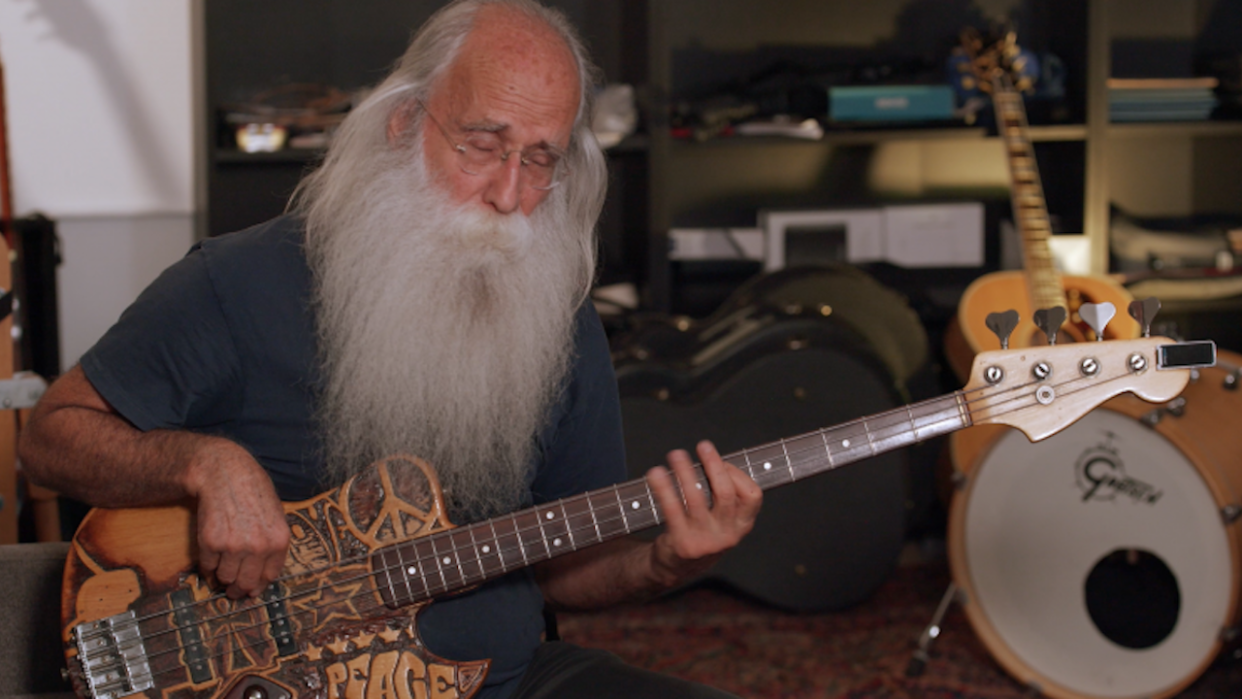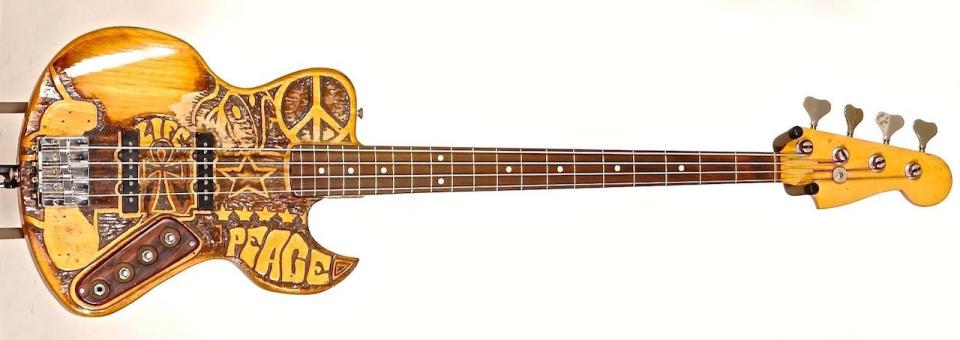Why Lee Sklar hand-carved his 1962 Fender Jazz Bass

When an album features the bass playing of Lee Sklar, you know you’re in for a treat. He’s first choice session man for the likes of Lyle Lovett, Jackson Browne, Steve Lukather and Phil Collins, and has played on too many hits to mention.
Aside from his regular session work, Sklar is also known for his long standing musical relationships with James Taylor. Indeed, it was the gig with Taylor that proved to be his ticket into the session scene back in the late ‘60s.
“I first met James while I was in a hard rock band called Wolfgang,” Sklar told Bass Player. “He came to a rehearsal and we dug each other, so I got a call to play a gig with him at the Troubadour.
“I had no intention of becoming a studio musician – music was just a hobby. I was an art student in college and I still think I'm a better sculptor than musician. I was really shocked when I started getting calls to play on people's records.”
Nowadays, Sklar plays a Dingwall five-string bass that will either enthral or terrify you depending on your fondness for the Ralph Novak fan-fretting system that it employs, but back in the early ‘70s his main axe was a 1962 Fender Jazz that he refers to as a “total hippie bass” since he carved peace signs into the body.

“The bass guitar I used on that first album with James started out as a 1962 Fender Jazz Bass, and then I got bored and did this to it in around 1968. The only drag was that I removed so much wood that it was neck-heavy, and so I had to add a two-pound piece of lead in the end of the strap to counterbalance it.”
The album in question was titled Mud Slide Slim and the Blue Horizon, on which Sklar pulled off the tricky task of laying down exactly the right kind of bassline for the delicate acoustic songs in which Taylor specialised.
The album's best-known song, and possibly Taylor's signature tune after his 1970s enormo-hit Fire And Rain, is a cover of Carole King's You've Got a Friend. It's a largely acoustic love song – but it's full of elaborate bass fills, to most people's surprise, with Sklar adding plenty of soft, high-register runs to the loping, mid-tempo chord sequence.
“There was never any real dialogue about what to play; I would listen to his thumb and at times double it, and other times I would try to find something that fit around that, maybe not a root but some other interval that would feed off and expand his part.”
Sklar's absent on some songs (You Can Close Your Eyes is the most obvious example), but elsewhere, as with Love Has Brought Me Around and Riding On A Railroad, the basslines are thunderous, with scale runs and passing notes way down at the lowest end.
“I listen to my early recordings now and think, That's interesting, though not necessarily what I'd play now – but it works for the time. It's like looking back and dumping on the hair and clothes of an era; it's not really fair.”
“I will say that the reunion with James and Carole King a few years back was amazing; we sounded like we'd just left off from our last gig in 1970.
“It was proof that you can go home again, after all.”
